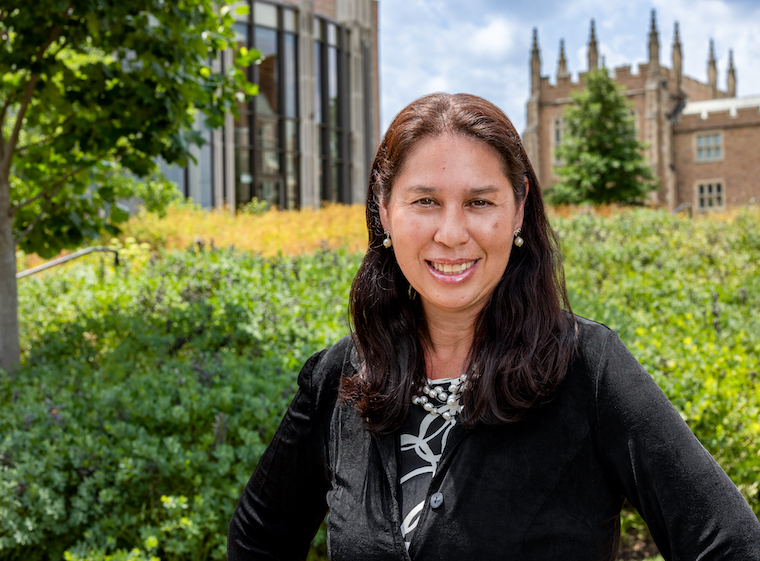A medical diagnosis provides a label and treatment path, but it often misses the nuances of daily life and functional ability. Two people with the same diagnosis may face very different challenges.
This gap inspired Patricia Welch Saleeby, PhD ’05, to embark on a journey that has enhanced patient care globally.
While a doctoral student at the Brown School, Saleeby was driven by a deep interest in disability issues. She connected with David Gray, an occupational therapy professor who was collaborating with the World Health Organization (WHO) on a new classification system to complement the International Classification of Diseases (ICD).
The ICD, the global standard for coding and classifying diseases, had a glaring limitation: It didn’t address how health conditions affect daily life and functioning.
While still at WashU, Saleeby played a key role in developing the International Classification of Functioning, Disability, and Health (ICF). As the assistant U.S. field trial coordinator, she contributed to a report presented at her first WHO meeting in Tokyo in 1998. The ICF was formally endorsed by the United Nations in 2001 and since has been adopted by many countries.
In the same way the ICD gives caregivers immediate diagnostic codes about the patient in front of them, the ICF offers essential context. Saleeby served on the WHO task force that integrated environmental factors into the ICF, recognizing that functioning is influenced by both health and environment.
This focus on functioning and environment preceded today’s understanding of social determinants of health. For instance, a patient with diabetes facing food insecurity may struggle to maintain proper nutrition. Documenting these challenges allows the care team to provide supportive interventions. The ICF also records functional or environmental factors when diagnoses are uncertain, offering crucial context for patient care.
In the U.S., ICF adoption is slow but gaining momentum, particularly with the integration of consistent functional coding into electronic health records. This development is vital for maintaining continuity of care across different
health-care settings.
Saleeby has been instrumental in integrating ICF codes into U.S. health records through her collaboration on the PACIO and Gravity projects. She’s also working with BigMove in the Netherlands to develop an English-language version of a mobile app that translates real-time patient experiences into ICF codes, enabling dynamic tracking of conditions and aligning treatment with patient needs and goals.
Today, as a professor and program director of social work at Bradley University, Saleeby continues to influence the field through her involvement with WHO committees and working groups. In her workshops, she highlights the ICF’s relevance to all health professions.
Saleeby credits her WashU training for giving her the advocacy skills to represent her profession globally. “It’s been a labor of love,” she says. “I believed in it from day 1.”



